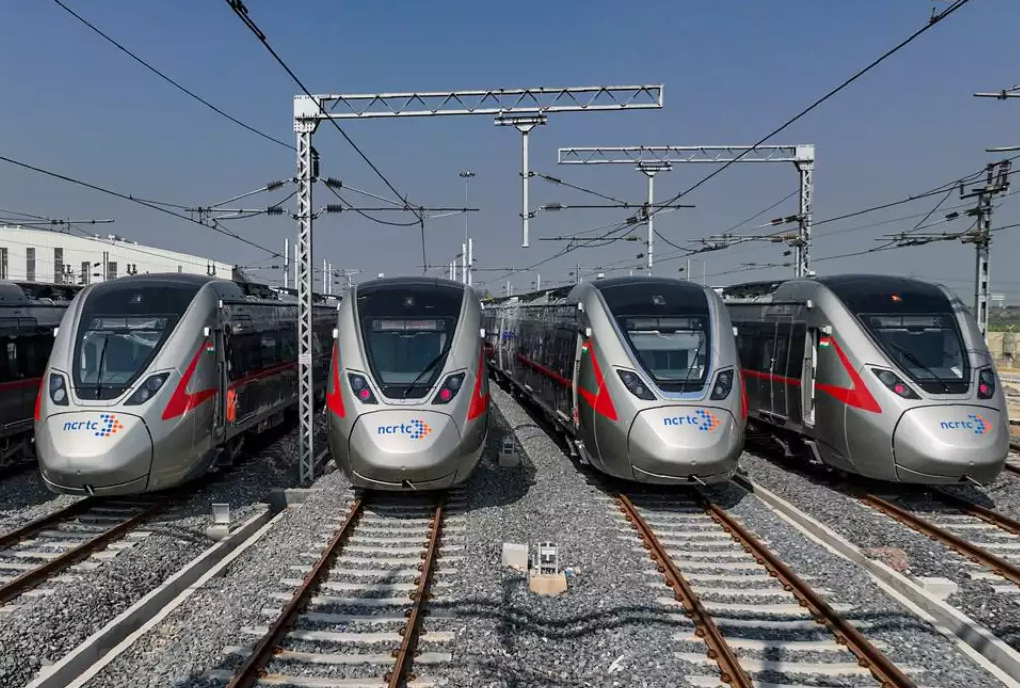
Representational photo: Twitter
The completion of the 260-meter special span for the Regional Rapid Transit System (RRTS) corridor over the Barapullah Flyover in Delhi is anticipated by the end of next month, officials revealed on Friday. Designed to minimise disruption to existing traffic, this span is a crucial component of the corridor’s infrastructure.
Linking the Sarai Kale Khan RRTS station with the New Ashok Nagar station, this corridor intersects the Barapullah flyover and the adjacent Ring Road. The 260-meter special span, elevated 25 meters above ground level, is expected to be finalized by May’s end, marking significant progress toward Stage-3 completion for the operation of Namo Bharat trains from Sahibabad to Sarai Kale Khan.
Meanwhile, construction of the Anand Vihar, New Ashok Nagar, and Sarai Kale Khan stations is well underway. In Delhi, the RRTS corridor spans 14 km, with the remaining 68 km situated in Uttar Pradesh. Approximately 9 km of the Delhi section is elevated, while 5 km runs underground.
With civil construction nearing completion, activities such as Over Head Electrical (OHE) and track laying are progressing rapidly. Following civil works, remaining tasks including signaling, telecommunications, and other infrastructure will be finalized.
The construction of elevated viaducts typically involves erecting piers at 34-meter intervals, joined by precast segments. However, in areas with geographical challenges like existing bridges or expressways, special spans are engineered to bridge these gaps. The Barapullah special span, comprising eight piers with two serving as portals, has been meticulously planned to optimize space usage and minimize traffic disruptions along the Ring Road.
Strategically positioned piers ensure minimal footprint on the Ring Road, allowing for potential future infrastructure expansion. Deep foundations, reaching depths of up to 45 meters, provide stability and strength to the special span.
The Delhi-Ghaziabad-Meerut RRTS corridor aims to significantly reduce travel time between Delhi and Meerut to under an hour, transforming regional transportation. With 34 km of the corridor operational from Sahibabad to Modinagar North, construction of the entire 82-km corridor is progressing swiftly, targeting full operational status by June 2025.
(With PTI inputs)
Five quiet corners across Delhi-NCR where February evenings slow the city down, letting breeze, fading…
A solo exhibition by Anjali Mittal exploring emotion, memory and intuition through layered blue-hued paintings
The incident occurred on Saturday near Bakhtawarpur. A senior police officer said a team rushed…
V K Saxena approves 20 per cent reservation, age relaxation, and test exemption for ex-Agniveers…
The fair at Gandhi Darshan brings together emerging and senior artists, showcasing over 200 artworks…
State Names Authority approves renaming of two metro stations and modifies seven others, aligning station…